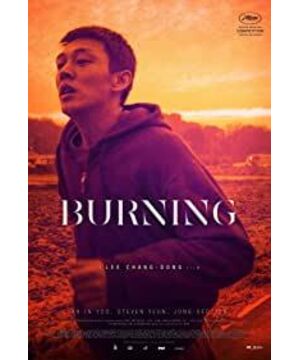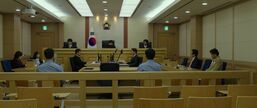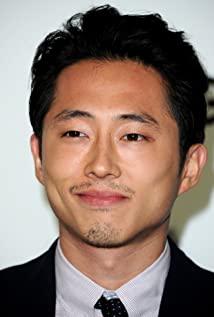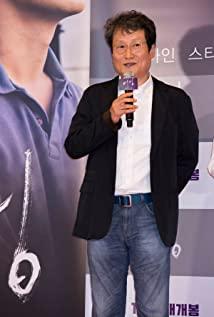Recently, I watched the popular Korean movie "Burning". After watching it, I felt that there was no end to it, so I found Haruki Murakami's original work "Burning the Barn" and Faulkner's novel "Burning" mentioned in the interview by director Li Cangdong. Stable", unexpectedly found that the characters created by the two authors in their respective works were well integrated into one movie by director Li Cangdong: the protagonist of the movie, Li Zhongxiu, is also the protagonist in Haruki Murakami's novel, and he is also Fokker. Shadoris Snopes, the protagonist of Nathan's novel "The Burning Horse Shed."
The two figures are like two people standing back to back. Originally, in Murakami's novel, no information was provided about the protagonist's past, so this is just an "empty" person, and his role in the story seems to be only a "bystander", not qualified to participate in the story ; And when Faulkner's story of Shadoris, a child living in the shadow of his father suffering from "anger regulation disorder", was injected into the original "empty" Murakami characters, this image became a past, There are present, real people, which gives the characters the right to act in the story (which of course is the final murder of Ben). In the movie, Li Zhongxiu, who met Huimei and had the story, is the protagonist of Murakami (that is, the bright line of the film), but about Li Zhongxiu's past, childhood shadows, and finally what led Li Zhongxiu to make a decision that was diametrically opposite to Murakami's original work, it was Fu Shadoris Snopes, the protagonist of Kerner's novels. (Dark lines of the movie) In addition, the director also made interesting changes to Lee Jong-soo's final decision. (So, "Burning the Horse Shed" cannot be regarded as the original work.) Let's analyze the two different novel characters presented by the protagonist of the film, Li Zhongxiu.
First of all, of course, is the character in Haruki Murakami's original work-the male protagonist who did not even give a name (then it's called "Zhongxiu in the novel").
In fact, from the tone of the original work, Zhongxiu's feelings for Huimei in the novel are much weaker than in the movie. Zhongxiu in the novel is a family man, to him, Emi is just a person who "can relax completely with her". In the novel, Zhong Xiuhui talks a lot to Huimei, and also listens to her, but in this communication, what he hopes for is "a certain mood, at least not understanding and sympathy". Therefore, to put it in colder words, Hye Mi in the novel is just an outlet for Zhong Xiu to escape from reality, and there is no emotion at all.
In the movie, Chung Soo becomes a bachelor who wants to be a novelist (without actually writing a single novel). Such a setting intensifies the alienation between the characters and the crowd, and at the same time shortens the distance between Zhong Xiu and Hui Mei. It is easier to breed ambiguous and dependent feelings between two equally lonely people, which also paved the way for Zhongxiu to find Huimei and avenge Huimei.
In general, the film restores the various characters and relationships between characters in Haruki Murakami's story to a high degree, and even highly restores many of the dialogues and plots in the novel, making the film full of strong Murakami flavor. However, the film also replaced the "indifferent and alienated male protagonist" with Murakami's most characteristic with a "male protagonist who suppressed emotions", which broke Murakami's boundaries and expanded the film from Murakami's world. There I met not only reality, but Faulkner.
Let's talk about Faulkner's characters.
First, a brief introduction to Faulkner's short story "Burning the Horse Shed":
Although Zhong Xiu's life experience is very different from that of the protagonist Shadoris Snopes in the novel, many shadows of the novel can still be found: for example, in the movie, Zhong Xiu has been running around for his father's trial, and in the novel His father was also sued for burning other people’s stables; Zhong Xiu’s father’s house had pictures of his youth hanging, implying that his father had served in the army, and the novel claimed that his father had fought in wars; Zhong Xiu revealed to Ben that he 's father suffers from anger regulation disorder. Judging from the behavior of the father in the novel who burns the stables when he is slightly unsatisfactory, there is probably a tendency in this regard... and so on. Most importantly, when Ben and Zhong Xiu met for the first time, Ben asked Zhong Xiu who his favorite novelist was, and Zhong Xiu said it was William Faulkner. The reason was:
We can take the story of "Burning the Horse Shed" as Zhong Xiu's childhood story. He has a father with anger regulation disorder. Many of his father's behaviors are not morally recognized by Zhong Xiu. He was forced to agree with his father, even to stand on his side (such as obeying his father's instructions and burning his mother's clothes; running around to save his father from prison). Although he did this, he had been carrying on a fierce ideological struggle in his heart - he had been struggling to find the balance between morality and immorality, ideal and reality, material and spiritual.
Did he find it? In the end, did he find it or explode?
Leaving aside the scene where Zhong Xiu kills Ben at the end of the movie, just watching Zhong Xiu finally giving up to save his father from prison, and watching the scene where his father is sentenced, makes one think that the son in "Burning the Horse Shed" finally Justice is chosen between the father and justice, and the plot of the father's crime is revealed. In the novel, after the son went through a difficult ideological struggle, he killed his relatives righteously and stood on the side of justice. So far, the movie basically did not break away from the moral line in "Burning the Horse Shed". However, in the last ten minutes of the film, it is unexpectedly (but foreshadowed) that Zhongxiu kills Ben in a meaningful way - first with his father's knife, then with fire to completely kill the scene burn. Regardless of whether Ben deserves to die or not, the form of murder must be unjust. In addition, according to the movie's suggestion, Zhongxiu's knife should be his father's knife. This can be understood as a kind of conversion to his father. It doesn't match the previous plot of killing his relatives and sending his father to jail. Could it be that Zhong Xiu finally failed to find a balance, and in the end Ben's words became the last straw that broke him, so he went wild?
In order to understand the truth, the landlord repeatedly watched the ending many times, and finally found an explanation (this explanation has also been mentioned by others, sorry for the incompetence of the landlord):
There is a scene at the end of the film where Jong-soo is writing in Hye-mi's room. Then gave a vision, the latter part seems to be the content of the novel written by Zhong Xiu, that is, the part of killing Ben is fictional, in fact, Zhong Xiu and Ben may no longer intersect. (Or is it similar to a parallel universe, in a state where Zhongxiu will kill Ben?)
But no matter whether Zhongxiu killed Ben in the end, his anger was always there, but he was expressing it in different ways. In fact, this also reflects a certain reality. Anger may be suppressed because of the existence of morality and law, but it will not disappear. One day it will erupt, perhaps in an extreme way, or in a completely different way.
The above is the landlord's analysis of the film from the perspective of the two novels, the level is limited, I really forgive you~~~
Finally posting my favorite movie clips:
View more about Burning reviews










